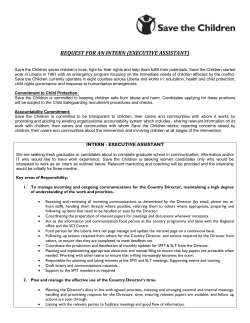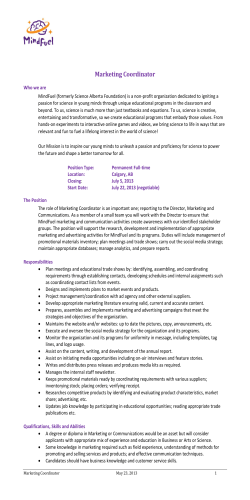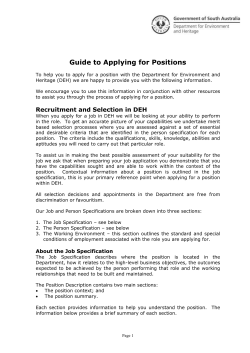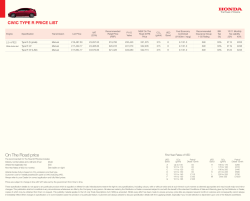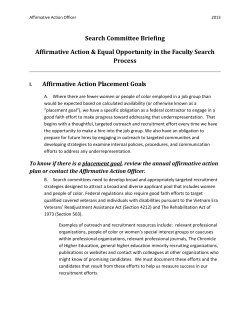
GCSE Classical Civilisation How to Transfer to AQA
GCSE Classical Civilisation How to Transfer to AQA Copyright © 2008 AQA and its licensors. All rights reserved. The Assessment and Qualifications Alliance (AQA) is a company limited by guarantee registered in England and Wales (company number 3644723) and a registered charity (registered charity number 1073334). Registered address: AQA, Devas Street, Manchester M15 6EX. Dr Michael Cresswell, Director General. Teacher Resource Bank / GCSE Classical Civilisation / How to Transfer to AQA / Version 1.0 Overview of Differences Current OCR Specification New AQA Specification Students study five topics. Assessment is linear: all assessment takes place at the end of Year 11. All candidates take a Full Course GCSE. Students study four topics. Assessment is modular: candidates may take some units at the end of Year 10. There is an opportunity for some candidates to take a Short Course GCSE. They can opt to top this up to a Full GCSE later. Candidates take three written papers for the Full Course and answer questions on one topic on each paper. The modular scheme means candidates can combine papers from the two tiers. Coursework is replaced by compulsory Controlled Assessment. AQA writes the tasks for Controlled Assessment. There will be a choice of two tasks on each of eight optional topics, and the tasks will be replaced each year. Candidates may continue to study either Greece or Rome or a combination of the two. However, they may also opt to study all literature topics or all civilisation topics. New skills based Assessment Objectives mean candidates must show not only knowledge but understanding and the ability to evaluate and respond to sources. In Higher Tier papers candidates write a structured essay. The three-part structure will help candidates address the three Assessment Objectives and will make the papers more accessible to Grade C candidates. In Foundation Tier papers candidates will no longer be faced with a choice of essay questions. Instead they will answer two more compulsory structured questions which will allow them to show sound knowledge across the specification for their chosen topic. Candidates take two written papers and answer questions on two or three topics on each paper. Candidates take both written papers from either the Higher or the Foundation Tier. Coursework is optional. Teachers write tasks for coursework. Candidates may study either Greece or Rome or a combination of the two. They must study both literature and civilisation topics. Content based Assessment Objectives lead to an emphasis on factual recall, especially in written papers. In Higher Tier papers candidates write an extended essay worth 16 marks on each topic. In Foundation Tier papers candidates have a choice of two guided essays worth 16 marks on each topic. klm Copyright © 2008 AQA and its licensors. All rights reserved. 1 Teacher Resource Bank / GCSE Classical Civilisation / How to Transfer to AQA / Version 1.0 Scheme of Assessment Current OCR Specification New AQA Specification Full Course Either Either Full Course Two written papers 2 × 1 hour 30 minutes Three written papers 3 × 1 hour plus Coursework plus One or two assignments Approx 3000 words 1 hour 30 minutes Short Course One written paper plus One written paper One assignment 3-4 hours Approx 2000 words or or One written paper Controlled Assessment 1 hour plus 2 hour 15 minutes Controlled Assessment One assignment 3-4 hours Approx 2000 words Written Papers All papers are available at Foundation and Higher Tier. Candidates choose two or three topics from a choice of ten. Written Papers All papers are available at Foundation and Higher Tier. Candidates choose one topic from a choice of four. Foundation Tier 1½ hours – 80 marks / 2¼ hours – 120 marks Candidates answer two structured questions from a choice of three and one guided essay from a choice of two on each topic. Foundation Tier 1 hour – 46 marks Candidates answer four compulsory structured questions. Higher Tier 1½ hours – 80 marks / 2¼ hours – 120 marks Candidates answer two structured questions from a choice of three and one essay from a choice of two on each topic. Higher Tier 1 hour – 46 marks Candidates answer two compulsory structured questions and one structured essay from a choice of two. 2 Copyright © 2008 AQA and its licensors. All rights reserved. klm Teacher Resource Bank / GCSE Classical Civilisation / How to Transfer to AQA / Version 1.0 Specification Content Teachers of OCR’s current specification will find that there is a lot of overlap with AQA’s new specification. The table below and on the following pages shows where the content of the OCR specification can be found in the new AQA specification. OCR specification AQA specification Main differences Greek Religion Elements of this topic can be found in Topic 1A, Homer, Odyssey Topic 3C, The Ancient Olympic Games and the Panathenaia Topic 4A, Homer, Iliad Topic 4C, Athenian Pottery Topic 1C, Athens and Sparta Students will be able to consider the role and characterisation of the gods in Homer’s Odyssey and Iliad. The depiction of the gods in art can be studied in Athenian Pottery. The Ancient Olympics and the Panathenaia includes a study of the festivals and ceremonies in Olympia and Athens. Home and Family in Athens Greek Athletic and Theatrical Festivals Topic 2A, Greek Tragedy and Drama Festivals Topic 3C, The Ancient Olympic Games and the Panathenaia Greek Art and Architecture Topic 4C, Athenian Pottery klm Students will compare social life in Athens with that in Sparta in four main areas: education; women’s lives, work and daily life. For Sparta, this last area will concentrate on life in the army. The content is divided between two topics. Students will study the City Dionysia with Euripides, Medea, in Topic 2A. The Olympic Games are in a topic which focuses entirely on athletic festivals, and where students will be able to compare them with both the Panathenaia and the modern Olympics. Students will study named vases, and will learn about black figure, bilingual and red figures techniques and their limitations. They will also look at the function and shapes of the vases, and at their decoration. This topic will be assessed by Controlled Assessment. Greek Architecture (the sanctuary buildings at Olympia and in Athens) is touched on briefly in Topic 2A. Copyright © 2008 AQA and its licensors. All rights reserved. 3 Teacher Resource Bank / GCSE Classical Civilisation / How to Transfer to AQA / Version 1.0 OCR specification AQA specification Main differences Sparta and the Spartan System Topic 1C, Athens and Sparta Roman Religion Elements of this topic can be found in Topic 2D, Social Life in Rome in the First Century AD Topic 2D, Social Life in Rome in the First Century AD Students will compare social life in Athens with that in Sparta in four main areas: education; women’s lives, work and daily life. For Sparta, this last area will concentrate on life in the army. Part of this topic is a study of Roman religion, including state religion, private religion, non-Roman cults, tolerance and intolerance. Roman Home and Family Life Roman Sport and Leisure Pompeii Roman Britain 4 Elements of this topic can be found in Topic 2D, Social Life in Rome in the First Century AD Topic 3D, Pompeii and Herculaneum Topic 1D, History of Roman Britain Topic 4H, Archaeology of Roman Britain Students will study family, society and religion, and will learn about Roman education, relations between family members, slaves, freedmen, patrons and clients, education, and leisure and entertainment. This topic includes a study of Roman theatres, amphitheatres and chariot racing. Students will study the destruction and rediscovery of both Pompeii and Herculaneum, their layout and buildings, and will be expected to show an understanding of the topography of the two towns and how they were destroyed, using both literary and archaeological sources The literary evidence for the invasions of Caesar and Claudius, Boudicca’s revolt and Agricola’s governorship will be examined in Topic 1D. The Controlled Assessment will focus on the archaeological evidence, and students will be encouraged to visit Roman sites in their locality. Copyright © 2008 AQA and its licensors. All rights reserved. klm Teacher Resource Bank / GCSE Classical Civilisation / How to Transfer to AQA / Version 1.0 OCR specification AQA specification Main differences Homer, Odyssey Topic 1A, Homer, Odyssey Homer, Iliad Topic 4A, Homer, Iliad Sophocles, Oedipus the King and Antigone The closest equivalent to this topic is Topic 2A, Greek Tragedy and Drama Festivals Euripides, Hippolytus and Alcestis The closest equivalent to this topic is Topic 2A, Greek Tragedy and Drama Festivals Aristophanes, Acharnians and Lysistrata Topic 4B, Greek Comedy Herodotus, The Persian War Topic 3A, Herodotus, The Persian Wars Students will study Homer, Odyssey, Books 5, 6, 9, 10 and 12, the storyline, Homer's portrayal of human and divine characters, and relevant information on the background to the Odyssey. Students will be able to study Homer’s Iliad either in combination with his Odyssey in Unit 1, or by itself. They will study at least six books of the Iliad and relevant information on the background. This topic will be assessed by Controlled Assessment. Instead of Sophocles, students will study Euripides, Medea. They will also learn about the City Dionysia and the staging of tragedies to help in their greater understanding and appreciation of Greek tragedy. Instead of Hippolytus and Alcestis, students will study Medea. They will also learn about the City Dionysia and the staging of tragedies to help in their greater understanding and appreciation of Greek tragedy. This topic will be assessed by Controlled Assessment. Students will be able to study one or two plays by Aristophanes (Acharnians and Peace), but may also study Menander, Old Cantankerous to widen their understanding and appreciation of Greek comedy. Students will study Xerxes’ invasion of Greece, including the battles of Thermopylae, Artemisium and Salamis. As well as analysing the personalities of Xerxes and Themistocles, students will assess Herodotus’ aims and methods as a historian. klm Copyright © 2008 AQA and its licensors. All rights reserved. 5 Teacher Resource Bank / GCSE Classical Civilisation / How to Transfer to AQA / Version 1.0 OCR specification AQA specification Main differences Virgil, Aeneid Topic 3B, Virgil, Aeneid Plautus, The Pot of Gold and The Swaggering Soldier Ovid, Metamorphoses Topic 2B, Plautus, The Pot of Gold and The Brothers Menaechmus Topic 4E, Ovid, Metamorphoses Pliny, Letters Topics likely to be of interest to those who have previously taught this topic include Topic 1D, History of Roman Britain Topic 3D, Pompeii and Herculaneum Topic 4G, Nero Tacitus, Empire and Emperors Topic 4G, Nero Students will study four books of the Aeneid to become familiar with the storyline and analyse Virgil’s portrayal of human and divine characters, his depiction of Fate and the Underworld and his literary techniques. We have replaced The Swaggering Soldier with The Brothers Menaechmus Students will have the opportunity to study some of the more popular stories in Ovid’s Metamorphoses. They will consider the themes that occur in the selected books such as family relationships, love stories and the theme of metamorphosis itself. This topic will be assessed by Controlled Assessment. While this topic has no real equivalent in the new specification, several topics contain elements which may be of interest. Topic 1D, History of Roman Britain, will give students an opportunity to study life in a Roman Province. Two of Pliny’s letters are prescribed in Topic 3D, Pompeii and Herculaneum, as evidence for the eruption of Vesuvius. Topic 4G, Nero, includes a look at the relationship between emperor and senators, and is assessed by Controlled Assessment. This topic will be assessed by Controlled Assessment. Students will focus on Nero: his personality, relationships and successes and failures. 6 Copyright © 2008 AQA and its licensors. All rights reserved. klm Teacher Resource Bank / GCSE Classical Civilisation / How to Transfer to AQA / Version 1.0 Additional Specification Content The following topics in AQA’s new specification have no equivalent in OCR’s current specification. These will give teachers and students the chance to look at exciting new areas. Topic Title Topic Content Topic 1B, Livy, Stories of Rome This topic will be appeal to those with a keen interest in Roman history. Students will study Livy’s account of the founding of Rome and her rule by kings. They will examine the reasons for the expulsion of the last king and assess whether the early Republic was a better form of government. Students will also assess Livy’s aims and the extent to which he achieved them. Students will study Plautus, The Pot of Gold and The Brothers Menaechmus. Candidates will be required to study the nature of Roman Comedy, the extent to which it mirrors ancient society and the devices, such as plot and characterisation, used to enhance the plays studied. They may wish to study this in conjunction with Topic 4B, Greek Comedy, in Unit 4. This is an archaeological topic and, as such, may appeal to those who also enjoy studying Pompeii and Herculaneum. Students will study various aspects of Mycenaean civilisation through the archaeological evidence available from the period. They will explore what the evidence from citadels, palaces, tombs and a variety of artefacts can tell us about Mycenaean life and how this early Greek civilisation developed over time. They will also consider the limitations of the evidence. This topic will appeal to those with a keen interest in Greek history and politics. Students will study the methods by which the Athenians governed themselves during the latter part of the 5th century BC and will demonstrate their ability to understand, evaluate and respond to a variety of relevant source material. This topic will be assessed by Controlled Assessment. Always a popular poet in Latin courses, Catullus has in the past been neglected in Classical Civilisation courses. In this topic students will study, through a selection of his poems, the lifestyle, friends, enemies and loves of Catullus and his literary circle in mid-first century BC Republican Rome. This topic will be assessed by Controlled Assessment. Topic 2B, Plautus, The Pot of Gold and The Brothers Menaechmus Topic 2C, Mycenaean Civilisation Topic 4D, Athenian Democracy Topic 4F, Catullus klm Copyright © 2008 AQA and its licensors. All rights reserved. 7
© Copyright 2026








